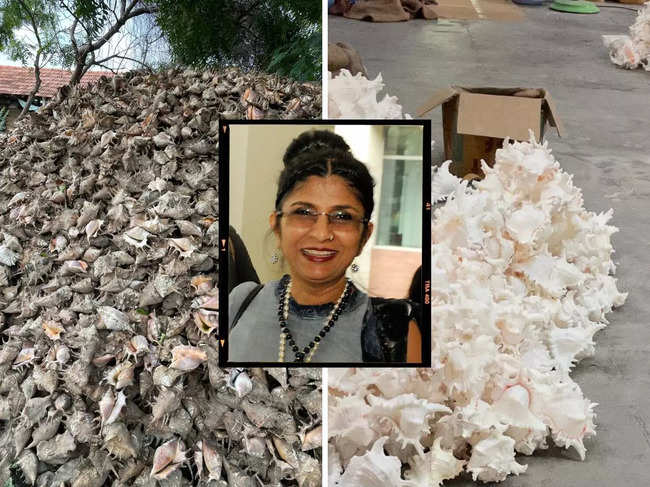 Agencies
AgenciesManaging Director of Kalaari, a technology-focussed venture capital firm, Vani Kola took to her LinkedIn account recently to share an insightful post. Her thoughts on seashells and their preservation bring forth a pertinent question on conservation and switching over to sustainable ways.
“The thrill of walking the beach, finding a seashell, and bringing it home. We have probably all experienced and enjoyed it,” read the opening lines of Kola’s post.
In her post, Kola said that she wanted to learn about the origin of these beautiful shells. The entrepreneur traced the journey of the seashells from the seashore to the souvenir shops. However, she was alarmed and sad at the trajectory of the seashells.
“As a simple curiosity, I wanted to learn where these beautiful shells come from. But as I learnt more about how seashells make it to souvenir shops, I found it alarming and sad,” she wrote.
Kola shared two pictures of seashells in their raw state and the polished ones that make it to the souvenir shops and are also exported. According to Kola, it was no longer a harmless hobby of collecting shells. She called it a trawling to satisfy human greed for possession of anything that was nice looking.
“These shells are about 1/100th of what is processed daily and exported all over. The white shells we prize are a result of the natural shells boiled in hot oil! Yes, that is correct. The oil melts the outer natural layer,” she wrote.
Towards the end of her post, Kola asked how harmless buying of souvenirs led to a chain of exploitation of natural resources. And this, according to Kola, made her cognizant of the need to be responsible and vigilant to understand the origin of things that she wants to possess.
“How did our harmless buying of souvenirs create a chain of exploitation of natural resources? This made me realise I need to be responsible and vigilant to understand the origin of things I want to possess,” she concluded the post.
A study that took nearly three decades, found that removing seashells from beaches could damage ecosystems and endanger organisms which rely on shells for their existence. This calls for the need to create awareness about the significance of conserving wildlife and biodiversity.
Conserving biodiversity will let the future generations also appreciate the bounties of nature and help revive many animals and organisms that are on the brink of extinction. Kola’s latest post encourages one to think about the importance of conservation and how it can help all of us maintain a healthy ecosystem.
Read More News on
(Catch all the Business News, Breaking News, Budget 2024 Events and Latest News Updates on The Economic Times.)
Subscribe to The Economic Times Prime and read the ET ePaper online.
Read More News on
(Catch all the Business News, Breaking News, Budget 2024 Events and Latest News Updates on The Economic Times.)
Subscribe to The Economic Times Prime and read the ET ePaper online.















 Get Unlimited Access to The Economic Times
Get Unlimited Access to The Economic Times
